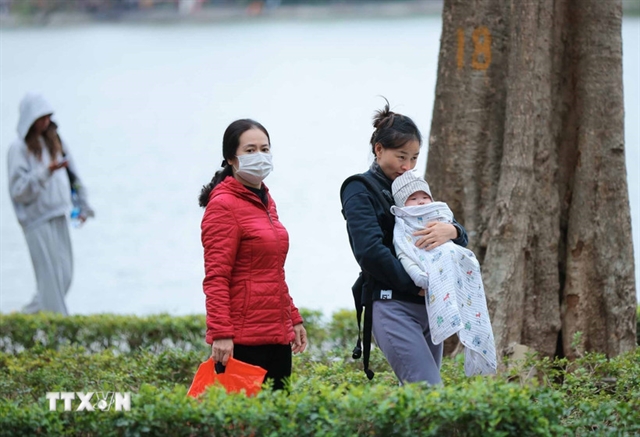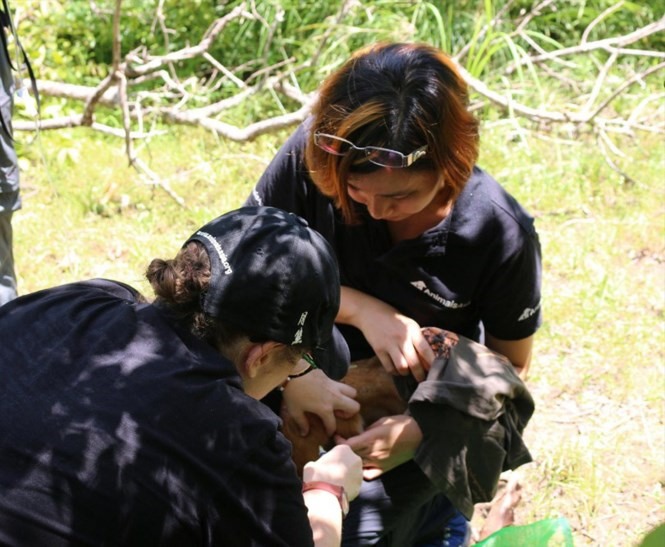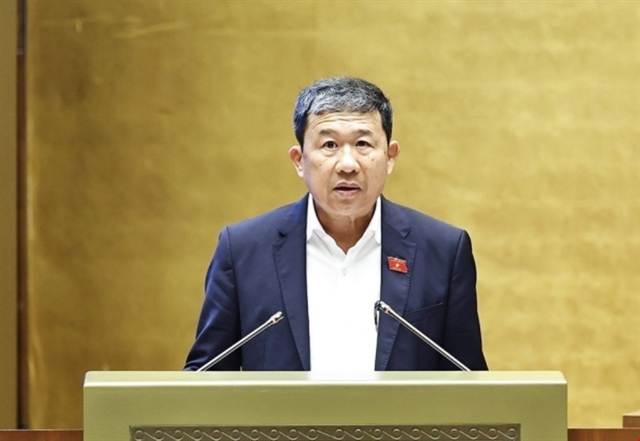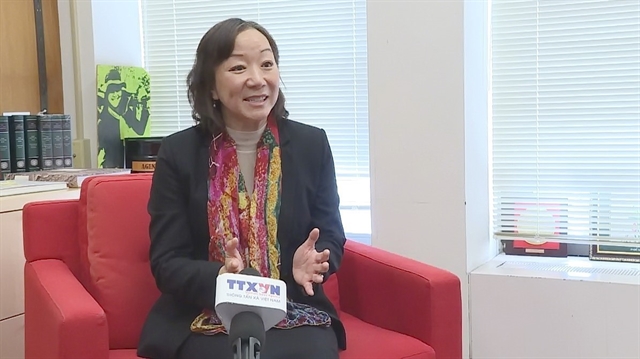 Society
Society

“Everyone has their own interest. For me, rescuing wild animals is my passion,” said Nguyễn Thanh Long from the Central Highlands’s province of Đắk Lắk.
 |
| A wild animal receives medical care. — Photo tienphong.vn |
ĐẮK LẮK — “Everyone has their own interest. To me, I choose rescuing wild animals as my passion,” said Nguyễn Thanh Long from the Central Highlands’s province of Đắk Lắk.
For four years, Long has bought countless number of wild animals from restaurants around Buôn Mê Thuột City and released them back into the forests.
His videos of freed animals posted on Facebook mostly attract praise, but others wonder if he is not just trying to catch attention.
Despite mixed opinions, he is determines to continue his mission.
Long’s wildlife passion began in 2012 when he raised a wild squirrel. One time, while walking with his pet and seeing it playing around, he realised that the natural environment was best for it. Therefore, Long let the squirrel return to the forest. Before leaving, it looked back to see him once last time and wagged its tail as if to say, "thank you".
In the same year, during a trip to Đắk Nông Province, he bought a pregnant basilisk and took it to the Sêrêpốk River area to release. “It feels like finding something you lost a long time ago when releasing animals,” Long said.
According to him, animals are usually meek and only turn ferocious when they are wounded. When veterinary centres refused to treat them, Long became an amateur vet. He carefully studies the habitats of each species before releasing them to avoid causing any conflicts over food chains.
In late October, Long rode from Buôn Mê Thuột City to Đắk Nông Province’s Krông Nô District to free a 2.7kg weasel he bought two months ago. It was trapped with two front legs broken. Long bandaged its limbs until the weasel recovered.
Looking at the weasel shuffling into the forest, Long told the Tiền Phong (Vanguard) newspaper his further plan.
“Despite the pain, the weasel is using all its strength to return home. This motivates me to call for stronger action from society in protecting wild animals. Using my own money to rescue them is just an initial step for a comprehensive preserve project ahead. Fortunately, my family always supports me,” he said.
Releasing wild animals is not as simple as it seems. Long has to prevent illegal hunters’ chasing his releases by limiting the number of his supporters and hiding detailed information of locations. Moreover, he has learned to protect himself from animals. A scar left by a monkey he released in 2013 always reminds him to be careful when doing this job.
As home to many animals, including endangered species, Yok Đôn National Park is a tempting target for illegal hunters.
According to Nguyễn Thế Hiển, officer of the park’s Sciences and International Co-operation Department, all traps and shotguns are made exclusively for different animals.
Among all, clamp traps are the most dangerous and brutal. They immobilise unlucky animals that step on their sharp jaws.
Traps are commonly placed in grass fields, in dense jungle or near riverbanks where animals usually go searching for food. They are so well camouflaged, humans struggle to detect them.
In 2013, a five-year-old elephant was caught in a trap, injuring its front leg and trunk. Although it was rescued and treated by experts from the parks and other international organisations, the beast never completely recovered.
Therefore, besides preventing deforestation, forest rangers also have to collect traps and rescue animals.
According to Hiển, animals rescued or handed in by local people undergo a health check-up. Those that are healthy are released immediately, otherwise, they receive medical treatment and special care at the park’s wildlife rescue station. With caged animals, experts keep them in a semi-natural environment and train them in survival before release.
At present, the station is the temporary home to five deer, three monkeys and several other endangered species. — VNS




